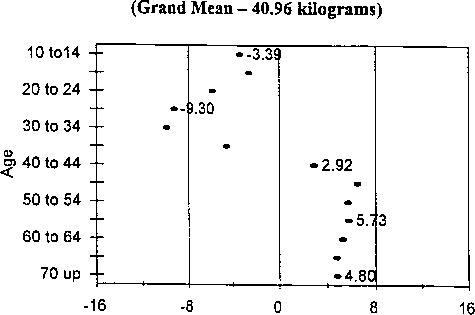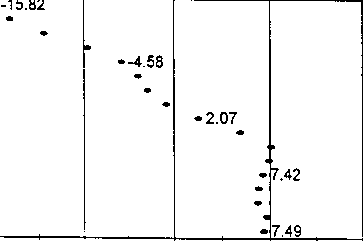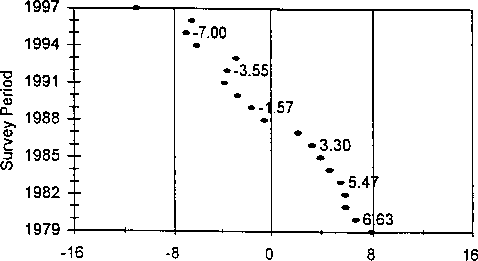196 H. Mori et al. / International Food and Agribusiness Management Review 3 (2000) 189-205
(A) Age

(B) Cohort
1985-89
(C) Period
E
о
СП
1975-79 -
1965-69 -
1955-59 -
1945-49 -
1935-39 --
1925-29 -
1915-19 -
<1909 -z

-8
0
8
16
-16

Fig. 1. Estimates of age, cohort and period effects for rice.
less beef than older ones (again, at-home only). In sharp contrast with rice described above,
those cohorts born before World War II are found to have inclination to consume less than
those born after the war. Additionally, there is a strong trend of increasing consumption due
to period effects. Thus, as those cohorts that are in the lower consumption stages of their age
More intriguing information
1. Industrial districts, innovation and I-district effect: territory or industrial specialization?2. Ex post analysis of the regional impacts of major infrastructure: the Channel Tunnel 10 years on.
3. Rent-Seeking in Noxious Weed Regulations: Evidence from US States
4. The name is absent
5. Government spending composition, technical change and wage inequality
6. The Effects of Reforming the Chinese Dual-Track Price System
7. DISCUSSION: POLICY CONSIDERATIONS OF EMERGING INFORMATION TECHNOLOGIES
8. Disentangling the Sources of Pro-social Behavior in the Workplace: A Field Experiment
9. On the Integration of Digital Technologies into Mathematics Classrooms
10. Synchronisation and Differentiation: Two Stages of Coordinative Structure